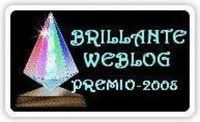Tuesday, 5 February 2008
Our EC journey
I first found out about elimination communication through a moneysaving website. Someone had put a link to the Wilkipedia definition: http://en.wikipedia.org/wiki/Elimination_communication
I read this and proceeded to read all the links and any other information I could find. The idea of practising elimination communication instantly appealed to me for a number of reasons. One reason was that it saves nappies and therefore money and waste. It seemed like such a natural way to deal with babies’ elimination needs. Once I had read about it, it almost seemed silly that I had never thought of it myself (and indeed some people have just thought of it themselves). It allows the child to be clean and dry the majority (if not all of) the time which is decidedly more pleasant and eliminates the common problem of nappy rash.
Another advantage is that it means starting the way you intend to go on with toilet training being a gradual process whereby the child gradually takes over responsibility as he is able. This is in contrast with the conventional method which involves starting with the child being expected to soil themselves and carry their waste next to their skin and then one day turning round and retraining them to do things another way. Of course the conventional method of nappies followed by toilet training works in the long run (after all if it didn’t, we’d all be walking round wearing nappies) but it is a long drawn out process often not enjoyed by either parent or child. It seemed to make sense that it is easier not to nappy train your child if you then want them to become “un-nappy trained” after two or three years.
So, I knew what elimination communication was, I thought it sounded like a good idea so what next? After discussing it with my husband, we decided to buy a couple of books about it in order to read up in slightly more detail than on the internet. Having read these, we were happy that we would give it a go with our first child whom at that time we were expecting. Although it is possible to do elimination communication without using any nappies at all, we decided to go for a more cautious approach whereby we would offer our baby the toilet but keep her in nappies to catch any “misses”. A miss is what would be called an “accident” in conventional toilet training. The term miss is a more positive term as it says to the child, “I missed you.” rather than, “You had an accident.”
The first days after our baby was born were such a whirlwind we really didn’t have time to think about elimination communication but when she was four days old we began. We started by holding her over a pot when we changed her nappy. Sometimes she did something, sometimes she didn’t. We started to look for signs of discomfort and change her and offer the pot if she seemed unhappy and the cause didn’t appear to be hunger or tiredness. We found that a particular time when she would need the toilet was when she stopped feeding part way through a feed. We started changing her nappy and offering her the pot at these times and found it meant she would then continue to feed again afterwards. I guess in a way it is similar to babies stopping feeding in order to burp.
At first we were just using an old plastic food container but it seemed silly tipping the contents down the toilet and rinsing the container when we could just hold her over the toilet so we started doing this. This also had the benefit of being an easier position to maintain as the baby could rest on our legs instead of being suspended in the air using our arms whilst kneeling on the floor and trying to aim into a little container.
Over time, we changed and offered the toilet more frequently. At first we found the nappy was always wet or dirty and most times she would also do something in the pot but gradually, the amount in the nappies decreased and the amount in the toilet increased. Using the toilet meant we caught more as it was easier to sit and wait during the slow newborn poo than it was holding her over a pot.
As our daughter got heavier, lifting her up to the toilet became a bit of a chore so we decided to buy a little potty. We chose a clear one as this means you can check whether they’ve done anything without having to lift them off. Personally, I preferred holding her on the toilet as it saved the work of cleaning out the potty so I used the toilet and my husband used the potty. At first she didn’t show any preference for either but then she began to show a preference for the potty for wees and the toilet for poos. I don’t know whether this was just caused by a difference in physical position or whether it was purely a preference. A little later she seemed to stop weeing in the potty but started weeing in the toilet much more easily. I don’t know why this change happened but as long as she is happy going somewhere other than a nappy, we are happy. She switched back o the potty again and since then we have bought a little toilet seat so we can now sit her on the toilet herself. We wondered what she would make of the toilet seat but she seems quite happy with it.
From when we started for about the first four months the number of misses we had decreased steadily until we were averaging about 2 ½ misses a day. This levelled out during the fifth month but then suddenly more than doubled almost overnight at just over five months. This is commonly known as a “potty pause” where misses increase relative to before. Sometimes they can last just a couple of days or a week or they can last months. Some people find them related to developmental stages (e.g. just before sitting, crawling, walking, cutting teeth etc.) but others find no obvious cause. In our case, the pause lasted almost three months and did not seem to be obviously connected to anything. In the past week, we have seen a massive and sudden change from around seven misses a day to two. This seems to have coincided with a decrease in the total number of wees done so presumably she has developed greater bladder capacity and control than she had before. (Our potty pause was wees only whereas for some people it is everything.)
So where do we go from here? Well hopefully we are on the home straight now towards toilet independence but even if we have more potty pauses on the way, we know our daughter has received great benefit from using elimination communication. Through it, we have been able to respond to her need/desire to be clean. She has never had nappy rash and she is happy to use the toilet just like we do. We started off using terry squares for nappies but as she only ever did one wee in them; we switched to muslin squares so our nappy laundry is almost non-existent despite using washable nappies (we just stick them in with the regular laundry). Instead of spending time and money buying nappies and wipes or having to clean her up instead this time is spent with our daughter when we take her to the toilet and this time is pleasant and enjoyable. If God chooses to bless us with more children I would definitely do it again.
Please do comment if you have any questions.
I read this and proceeded to read all the links and any other information I could find. The idea of practising elimination communication instantly appealed to me for a number of reasons. One reason was that it saves nappies and therefore money and waste. It seemed like such a natural way to deal with babies’ elimination needs. Once I had read about it, it almost seemed silly that I had never thought of it myself (and indeed some people have just thought of it themselves). It allows the child to be clean and dry the majority (if not all of) the time which is decidedly more pleasant and eliminates the common problem of nappy rash.
Another advantage is that it means starting the way you intend to go on with toilet training being a gradual process whereby the child gradually takes over responsibility as he is able. This is in contrast with the conventional method which involves starting with the child being expected to soil themselves and carry their waste next to their skin and then one day turning round and retraining them to do things another way. Of course the conventional method of nappies followed by toilet training works in the long run (after all if it didn’t, we’d all be walking round wearing nappies) but it is a long drawn out process often not enjoyed by either parent or child. It seemed to make sense that it is easier not to nappy train your child if you then want them to become “un-nappy trained” after two or three years.
So, I knew what elimination communication was, I thought it sounded like a good idea so what next? After discussing it with my husband, we decided to buy a couple of books about it in order to read up in slightly more detail than on the internet. Having read these, we were happy that we would give it a go with our first child whom at that time we were expecting. Although it is possible to do elimination communication without using any nappies at all, we decided to go for a more cautious approach whereby we would offer our baby the toilet but keep her in nappies to catch any “misses”. A miss is what would be called an “accident” in conventional toilet training. The term miss is a more positive term as it says to the child, “I missed you.” rather than, “You had an accident.”
The first days after our baby was born were such a whirlwind we really didn’t have time to think about elimination communication but when she was four days old we began. We started by holding her over a pot when we changed her nappy. Sometimes she did something, sometimes she didn’t. We started to look for signs of discomfort and change her and offer the pot if she seemed unhappy and the cause didn’t appear to be hunger or tiredness. We found that a particular time when she would need the toilet was when she stopped feeding part way through a feed. We started changing her nappy and offering her the pot at these times and found it meant she would then continue to feed again afterwards. I guess in a way it is similar to babies stopping feeding in order to burp.
At first we were just using an old plastic food container but it seemed silly tipping the contents down the toilet and rinsing the container when we could just hold her over the toilet so we started doing this. This also had the benefit of being an easier position to maintain as the baby could rest on our legs instead of being suspended in the air using our arms whilst kneeling on the floor and trying to aim into a little container.
Over time, we changed and offered the toilet more frequently. At first we found the nappy was always wet or dirty and most times she would also do something in the pot but gradually, the amount in the nappies decreased and the amount in the toilet increased. Using the toilet meant we caught more as it was easier to sit and wait during the slow newborn poo than it was holding her over a pot.
As our daughter got heavier, lifting her up to the toilet became a bit of a chore so we decided to buy a little potty. We chose a clear one as this means you can check whether they’ve done anything without having to lift them off. Personally, I preferred holding her on the toilet as it saved the work of cleaning out the potty so I used the toilet and my husband used the potty. At first she didn’t show any preference for either but then she began to show a preference for the potty for wees and the toilet for poos. I don’t know whether this was just caused by a difference in physical position or whether it was purely a preference. A little later she seemed to stop weeing in the potty but started weeing in the toilet much more easily. I don’t know why this change happened but as long as she is happy going somewhere other than a nappy, we are happy. She switched back o the potty again and since then we have bought a little toilet seat so we can now sit her on the toilet herself. We wondered what she would make of the toilet seat but she seems quite happy with it.
From when we started for about the first four months the number of misses we had decreased steadily until we were averaging about 2 ½ misses a day. This levelled out during the fifth month but then suddenly more than doubled almost overnight at just over five months. This is commonly known as a “potty pause” where misses increase relative to before. Sometimes they can last just a couple of days or a week or they can last months. Some people find them related to developmental stages (e.g. just before sitting, crawling, walking, cutting teeth etc.) but others find no obvious cause. In our case, the pause lasted almost three months and did not seem to be obviously connected to anything. In the past week, we have seen a massive and sudden change from around seven misses a day to two. This seems to have coincided with a decrease in the total number of wees done so presumably she has developed greater bladder capacity and control than she had before. (Our potty pause was wees only whereas for some people it is everything.)
So where do we go from here? Well hopefully we are on the home straight now towards toilet independence but even if we have more potty pauses on the way, we know our daughter has received great benefit from using elimination communication. Through it, we have been able to respond to her need/desire to be clean. She has never had nappy rash and she is happy to use the toilet just like we do. We started off using terry squares for nappies but as she only ever did one wee in them; we switched to muslin squares so our nappy laundry is almost non-existent despite using washable nappies (we just stick them in with the regular laundry). Instead of spending time and money buying nappies and wipes or having to clean her up instead this time is spent with our daughter when we take her to the toilet and this time is pleasant and enjoyable. If God chooses to bless us with more children I would definitely do it again.
Please do comment if you have any questions.
Subscribe to:
Post Comments (Atom)


































4 comments:
I have heard of this and I can understand how it makes sense if you have the time and patience! It was interesting reading your experiences, I wonder if this might become more widespread as the idea becomes more known? It would be better for the environment than all those diapers/nappies.
Yes it's not for everyone but it would be nice if everyone knew about it and therefore had the option.
Hi,
I came across your website searching for EC methods, and I would be so grateful if you could point me in the right direction as to what books to read. I am in the 5th month of my first pregnancy and we are going the EC + cloth diaper route. Any help in the book department would be appreciated! Thank you for your time and blessings to you and your family.
Christine
Hi Christine, I wrote a post called "EC Resources" which gives books and various website links you would probably find helpful. If you have any other questions, feel free to ask.
Susan. :o)
Post a Comment
"For there is not a word in my tongue, but, lo, O LORD, thou knowest it altogether." ~ Psalm 139:4
Comments are now moderated due to spammers. If you wish to make a private comment or you would like to leave a comment but are unable to do so, please feel free to use my contact form near the top right of my blog.